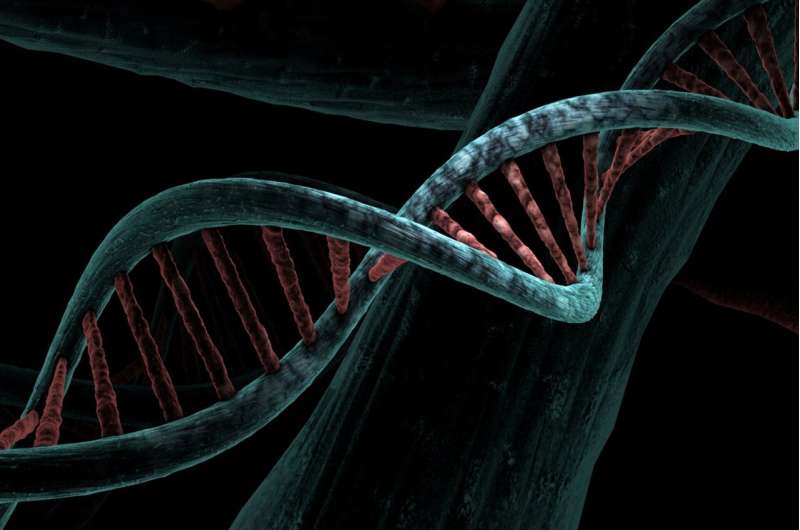

As the cost of genome and exome sequencing falls, its use in characterizing rare diseases and personalizing cancer treatment, for example, is becoming far more frequent. But such analyses may throw up findings unrelated to the condition for which it has been requested. What to do with these secondary findings (SFs) or incidental findings (IFs) is problematic. Should they be reported to the patient and in what circumstances? How should clinical geneticists deal with the perhaps unnecessary worry that they may cause?
At the annual conference of the European Society of Human Genetics, Estela Carrasco, MSc, a Ph.D. student and genetic counselor at the Vall d’Hebron Hospital, Barcelona, Spain, will describe how she and colleagues set out to look at the prevalence of SF/IFs in cancer susceptibility genes (CSGs) in patients who had undergone exome sequencing because of rare diseases not related to cancer, and to identify CSGs with a potential clinical actionability that were unrelated to the purpose of the primary analysis. They then evaluated the psychological impact of disclosing SF/IFs to patients and their relatives compared with a cohort who underwent testing because of their family cancer history. They analyzed exomes from 533 patients who were examined for non-cancer indications and followed up by examining the psychological impact of the disclosure of the SF/IFs to these patients two to six months after delivery of the results.
“We found SF/IFs pathogenic (potentially disease-causing) variants in CSGs in 2% of patients who had undergone exome testing for reasons unrelated to cancer predisposition,” Carrasco says. “This enabled us to carry out predictive testing in 42 relatives, 18 of whom carried CSGs.”
The psychological impact was higher in those where the variant was identified as an incidental finding, but this needs to be balanced against the advantage of early detection and the preventive strategies that could be introduced in families who had no prior cancer diagnosis, the researchers say. “Although a 2% rate of SF/IFs may not sound very high, it is notable. And genetic counseling can help both in the communication of the results and to help patients and their families adapt to the newly discovered genetic condition,” says Carrasco.
The researchers intend to continue to investigate new ways of delivering genetic test results to patients; for example, the impact of separating the time at which the primary findings are disclosed from the secondary findings. “We believe that being able to demonstrate clinical actionability of the secondary findings is reassuring to patients.”
Out of the 29 carriers identified (11 index cases and 18 relatives), 20 enrolled for further surveillance. The researchers were able to identity three paragangliomas (a type of neuro-endocrine tumor), and one early breast cancer in a 74 year-old woman with a BRCA2 variant who had finished the population-based breast cancer screening. One relative in the BRCA2 family with metastatic prostate cancer was given target therapy after his BRCA2 status was revealed.
Particular problems arise in the case of children, however. “The principle of a child’s autonomy may be lost if disclosure is made before an appropriate age, so healthcare professionals should be cautious when exome sequencing analysis is requested in minors,” says Carrasco. “On the other hand, disclosing these results could generate an indirect benefit for these children because it may allow their relatives to adhere to early detection and prevention programs, thus preserving their health. To achieve this, it is important to report only clinically actionable genes.”
“It is important to provide an adequate counseling to individuals undergoing exome sequencing, or in case of children to their parents or guardians, in order to make sure that all the potential medical applications of genetic testing are understood. And, on the professional front, in cases where exome sequencing is requested by clinicians who have little training in the delivery of information about SF/IFs, genetic counselors and clinical geneticists should form part of the multidisciplinary team providing care.”
Professor Alexandre Reymond, chair of the conference, says that “contrary to radiologists, whose incidental findings mean there is a tumor, geneticists’ incidental discoveries are often predictive in nature. While this should not prevent us from acting on an actionable finding, this requires dedicated and specifically trained personnel to ensure that all the information provided to patients and their families is clear, comprehensible, and understood.”
More information:
Conference: 2022.eshg.org/
Citation:
Exploring the deep link between cancer and genetics (2022, June 10)
retrieved 11 June 2022
from https://medicalxpress.com/news/2022-06-exploring-deep-link-cancer-genetics.html
This document is subject to copyright. Apart from any fair dealing for the purpose of private study or research, no
part may be reproduced without the written permission. The content is provided for information purposes only.
